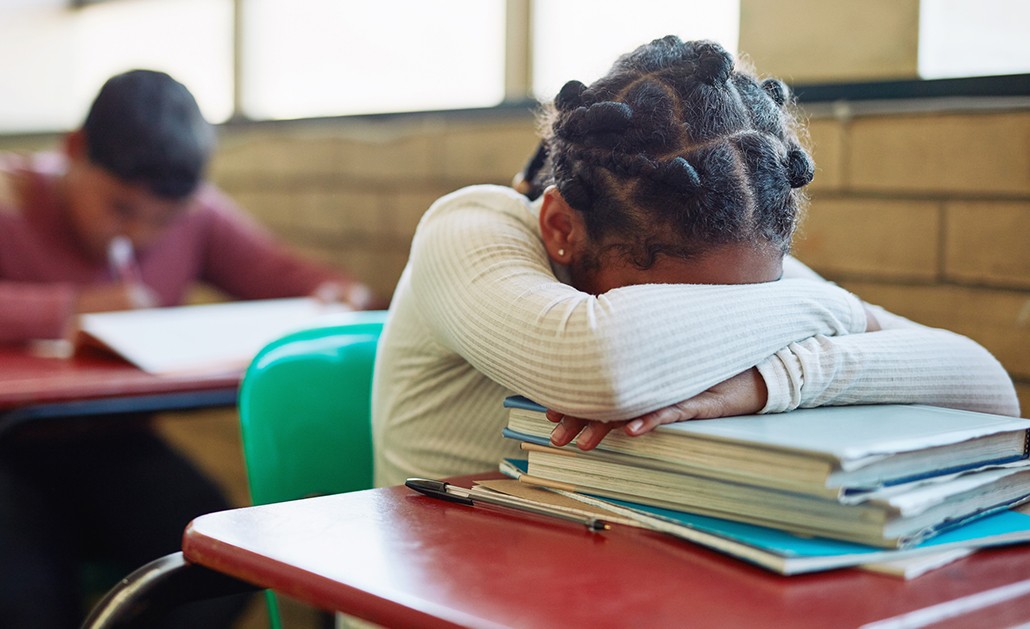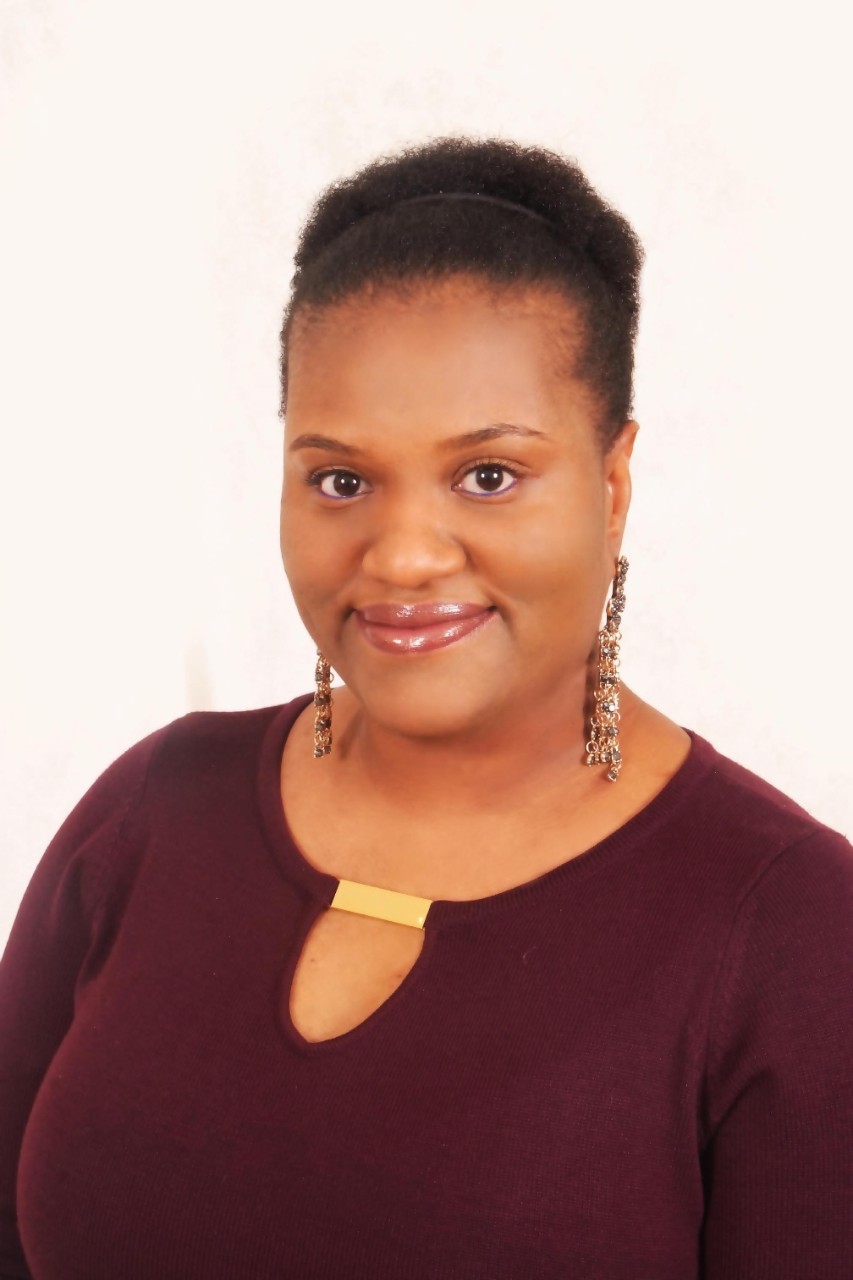
Black girls represent 15 percent of the students enrolled in public schools in the United States, according to data released by the Department of Education, but they account for 54 percent of all out-of-school suspensions, 37 percent of all arrests, and 28 percent of all instances of physical restraint. Photo by iStock.
Black girls do not act out any more than white girls, according to a report by the National Women’s Law Center, but they are much more likely to be suspended, arrested, and physically restrained at school.
Many teachers and administrators treat black girls like adults and frequently remove them from the classroom for violating dress codes, says Takia Myers, a second-year graduate student in the Boston College School of Social Work who studies why black girls are being punished disproportionately.
“Gendered racism, sexism, and misogynoir are pushing black girls out of schools,” says Myers, who used the term to describe misogyny targeted toward black girls and women. “They’re consistently being viewed as adults when they’re just children.”
Black girls represent 15 percent of the students enrolled in public schools in the United States, according to data released by the Department of Education, but they account for 54 percent of all out-of-school suspensions, 37 percent of all arrests, and 28 percent of all instances of physical restraint. Black girls make up 40 percent of the female student population in Boston Public Schools, but they account for 62 percent of all out-of-school suspensions and 77 percent of all arrests of that group.
Myers recently received a summer fellowship from the Rappaport Institute for Greater Boston, a research and policy center housed at Harvard University, to help reduce the number of black girls who get pushed out of Boston schools. She will work for Michelle Wu, a city councilor at large, to develop policies to promote the equitable treatment of black girls and create a database to track how and why they are being disciplined at higher rates than their peers.
“We need to come up with a way to be transparent and hold people accountable for over-policing in schools,” says Myers, who was one of 20 graduate students in Massachusetts to receive the fellowship.
The Boston Public Schools did not respond to a request for comment on the steps BPS is taking to address the issue.
‘Thank you for teaching me how to take care of myself’
Myers grew up in Boston and attended school in the city until she completed the third grade. Starting in the fourth grade, she enrolled in a predominately white school in the suburbs, where, she says, she sometimes felt isolated and alone. Teachers and administrators often held biased perceptions of black students and struggled to mete out discipline fairly, she says.
“The shots fired figuratively at one’s self-esteem when you see other students being validated, supported, and encouraged definitely takes a toll on how you envision yourself when you look different and don’t receive the same treatment,” she says.

Takia Myers
Now Myers is working to ensure that future generations of black girls have a fair opportunity to thrive in school. She follows the work of social justice scholar Dr. Monique Morris, who authored Pushout: The Criminalization of Black Girls in Schools. She supports legislation proposed by Ayanna Pressley, the first black congresswoman from Massachusetts, to promote the wellbeing and academic success of black and brown students. And she completed one of her internships at a nonprofit organization in Boston, where she worked to prepare students of color to excel in high school and college.
“We talked about recognizing feelings and emotions,” says Myers, who studies in the mental health field of practice at the School of Social Work, “and I made sure to ask questions about students’ identities, racial, ethnic, and cultural backgrounds, and beliefs.” One student wrote Myers a letter. “Ms. Myers,” the student wrote, “thank you for teaching me how to take care of myself.”
Myers, who served in the Army during the Iraq War, currently analyzes client satisfaction data at the Huntington House in Jamaica Plain, which provides lodging for veterans while they receive outpatient medical treatment at one of the Veterans Affairs Hospitals in Boston. She says that her professional goal is to lead a team that provides mental healthcare to black women who served in the military.
More than 40 percent of homeless veterans identify as black women, according to a report by the United States Government Accountability Office. And a review of racial and ethnic disparities in the Veterans Affairs healthcare system found that black veterans are less likely to have primary care physicians than their white counterparts.
“Black womxn veterans have shared with me that they don’t feel fully comfortable speaking with providers who aren’t black womxn,” says Myers, who used the term denoting gender fluidity and inclusivity. “If you’re not able to be open and honest about all of your experiences with a provider you trust, you won’t be able to adequately address the areas of your life that impact overall health, mental health, and wellbeing.”
Myers credits her classes, professors, and field placements with helping her develop the skills, confidence, and humility required to help people heal. For “Family Therapy,” she recruited actors to play the roles of the family members in the 1990s sitcom The Fresh Prince of Bel-Air; asked them to write a lighthearted rap song that praised each member of the family; and then led a mock therapy session in which they sang the song together.
“I was able to adapt the intervention according to the needs of the family,” says Myers. “I enjoyed witnessing the beauty of a family that was experiencing difficulty, yet still pouring their hearts out to one another through music, and I learned that helpful interventions don’t necessarily have to be these linear, robotic sessions.”
‘A true student leader’
Faculty members describe Myers as a thoughtful student who brings humor, inquisitiveness, and honesty into the classroom. They commend her ability to connect her work and life experience to class projects and praise her leadership as chair of the Student Collective, which oversees nine student groups and committees dedicated to promoting acceptance and inclusion in the school.
“Takia’s work is highly responsive to our community’s—and our country’s—urgent needs,” says Cal Halvorsen, an assistant professor, who first met Myers in fall 2018 when she took “Basic Skills in Macro Practice.” “Her breadth of work and life experience are real assets to our school and to our profession.”
Samuel Bradley, Jr., an assistant professor, echoes Halvorsen. “Takia is a true student leader,” says Bradley, who knows Myers from “Dismantling Organizational Bias,” which prepares students to integrate equity, justice, and inclusion into the workplace.
“Years from now, I think Takia will be leading in important areas of social work practice with black womxn and girls,” he adds. “I couldn't be more excited to see what she will do with her career.”
The fellowship, it seems, is just the beginning.


